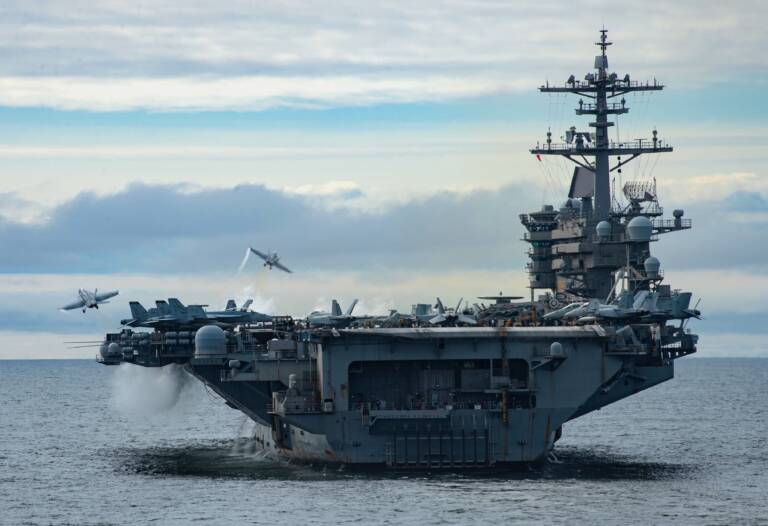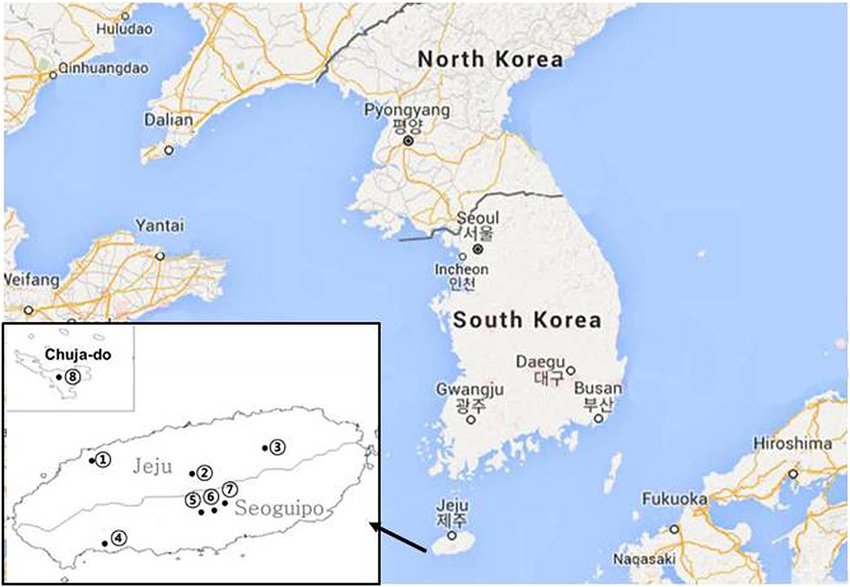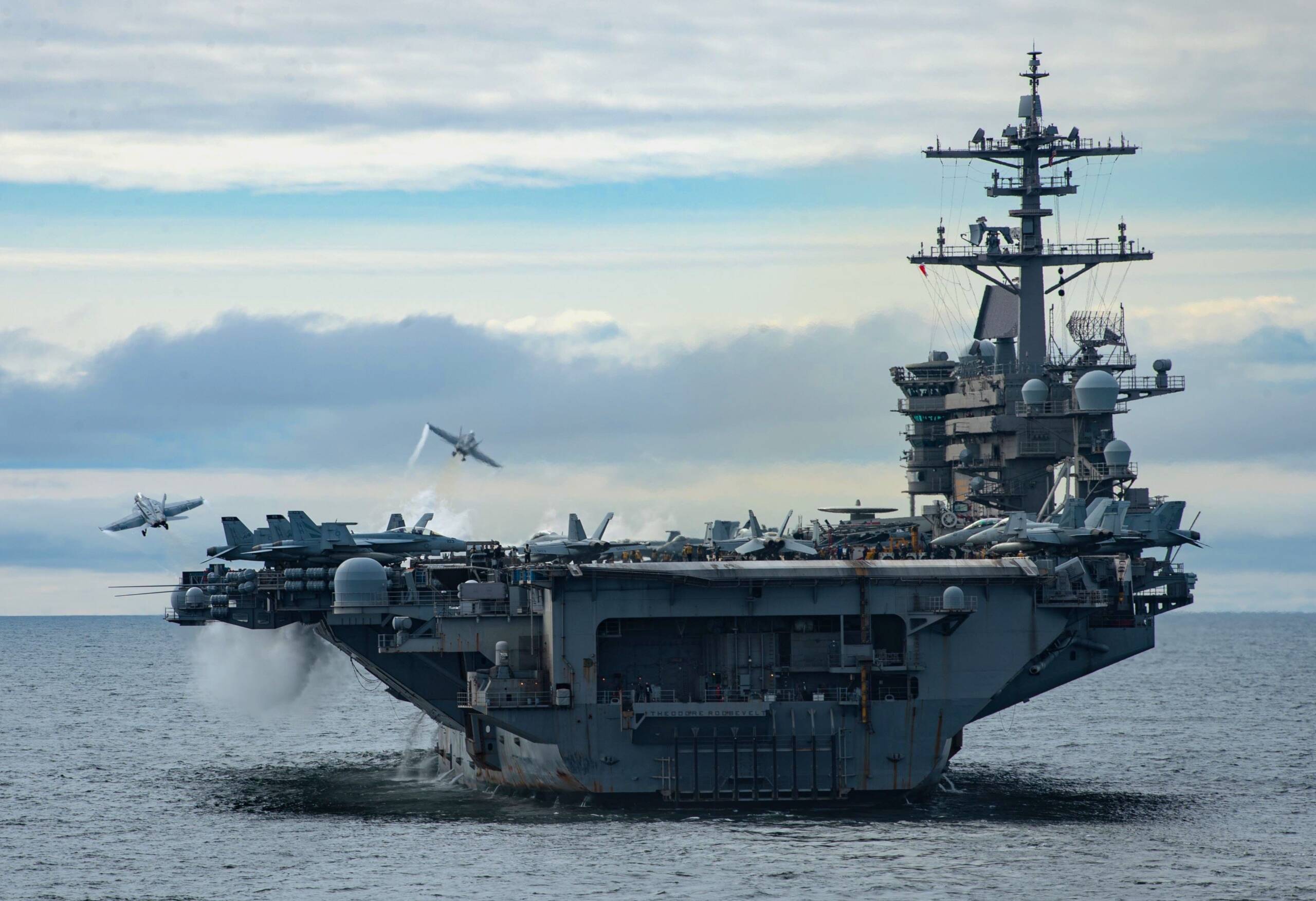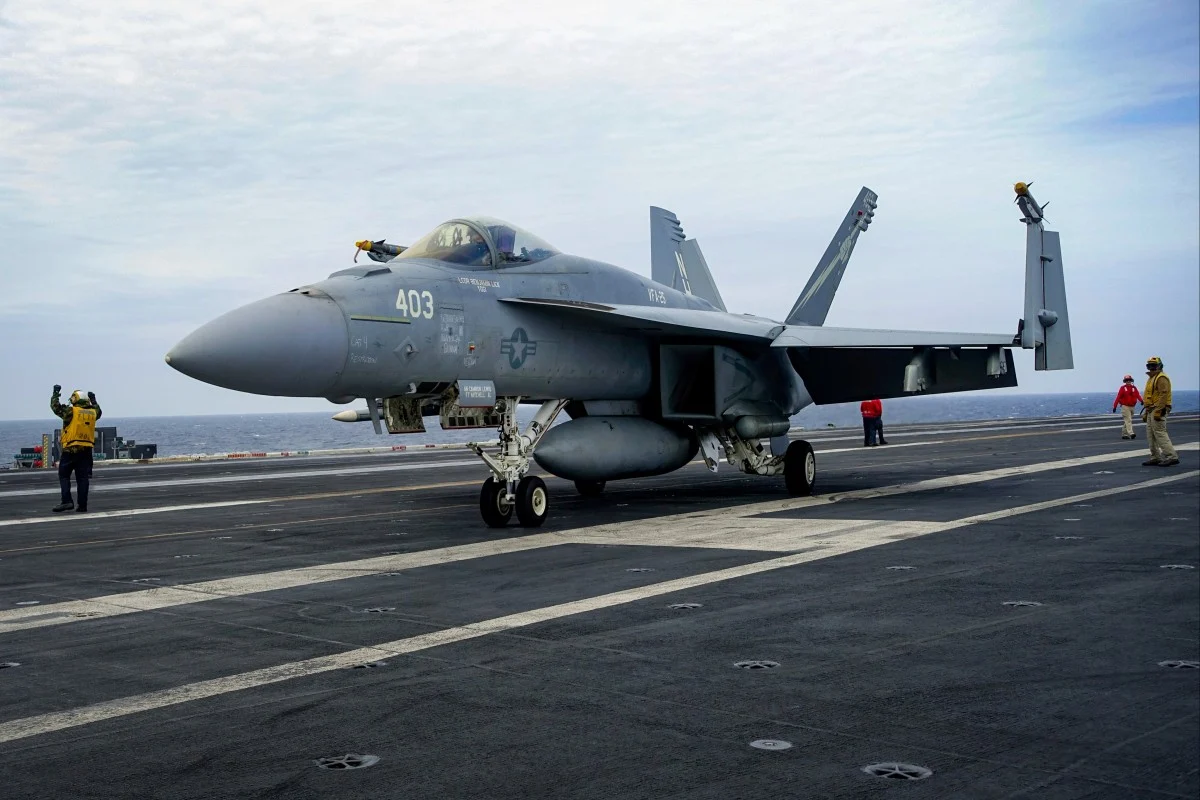The major US-led joint maneuvers in Korea worry China

Last week, South Korea's navy conducted joint naval exercises with the United States and Japan in international waters south of Jeju Island to "enhance joint operations against North Korea's nuclear and missile threats ”.
Washington's military cooperation with Seoul and Tokyo may be aimed primarily at North Korea, but it is also likely to unnerve China, adding momentum to 'transactional' relations between Beijing and Pyongyang, according to analysts.
The exercise involved six warships – the aircraft carrier USS Theodore Roosevelt , three Arleigh Burke-class guided-missile destroyers and two Aegis destroyers from South Korea and Japan.
“This training was conducted to implement a multi-year trilateral training plan established jointly by the defense authorities of South Korea, the United States and Japan, in accordance with last year's Camp David Agreement,” the Ministry said of the South Korean Defense.
The South Korean Navy confirmed that forces have focused on anti-submarine warfare training and the ability to respond to North Korea's underwater threats, such as submarines and submarine-launched ballistic missiles.
The three nations also conducted maritime interception training to stop the smuggling of weapons of mass destruction, as well as search and rescue training.
Washington strengthened military ties with Seoul and Tokyo following the Camp David summit in August, where the leaders pledged to "regularize defensive exercises that help strengthen trilateral responses" against threats from North Korea.
Last week's exercise followed January naval drills between the three countries, with a U.S. aircraft carrier located in a similar location south of Jeju in the East China Sea.
“The trilateral naval exercises are geared towards responding to threats from North Korea, but Beijing is certainly watching as the three allies strengthen military cooperation,” said Andrew Yeo, senior fellow and president of the SK-Korea Foundation for Korea Studies at the Brookings Institution think tank in Washington.
Cho Han-bum, a senior researcher at the Korea Institute for National Unification, said the waters – south of Jeju and north of Taiwan – are of strategic importance to Beijing.
“As a result, China may be concerned that these Korea-US-Japan maritime security exercises may influence China, especially regarding the Taiwan Strait issue. This is also an area where there may be concerns about expanding security countermeasures against Taiwan,” Cho said.
“From the US perspective, the southern part of Jeju serves as North Korea's control, but also, due to its geopolitical characteristics, it is an area that can also serve as China's control.” In short, the exercises manage to kill two birds with one stone.
South Korea's participation in joint US-Japan training is leading China to reconsider its relationship with Seoul, which is seen increasingly closer to the two allies and less and less as an independent actor .
Yang Uk, a researcher at the Asan Institute for Policy Studies in Seoul, said that while the exercises demonstrate systemic cooperation between South Korea and the United States in responding to threats from North Korea, they would also “ inconvenient” for China.
“Basically, the response against China has been achieved through cooperation between the United States and Japan,” Yang said.
“But now, South Korea's participation in joint US-Japan training is leading China to view trilateral ties as a target for itself.”
According to Yang, the area of the East China Sea south of Jeju Island is a "strategic point" for China, because its navy must pass near the island and the Japanese archipelago on its way to the Pacific Ocean. After all, it is enough to check the map to understand it.
So if this type of exercise can be considered normal and non-threatening by Seoul, the Chinese perception can be very different and, given the presence of a significant US naval group, even threatening to Beijing's interests.
The complex diplomatic game of the Far East complicated by Ukraine
Chinese Foreign Minister Zhao Lijian's recent visit to North Korea has further strengthened ties between the two countries, fueling concerns in the United States and its allies.
Analyst Kang Jun-young interprets the move as a dual message from China: consolidating relations with Pyongyang to keep North Korea-Russia ties under control and, at the same time, issuing a warning to South Korea's joint exercises -USA or South Korea-USA-Japan trilateral training.
Beijing fears losing influence over North Korea to Russia, maintaining its leading position in relations with Pyongyang and in competition with the United States.
However, Andrew Yeo, president of the SK-Korea Foundation, argues that ties between China and North Korea will remain "transactional", with Beijing supporting Pyongyang on the international stage to counter strengthening ties between the US and allies.
The problem is that Beijing on the one hand cannot legitimize or excessively tighten ties with Kim Jong-un, so as not to overly excite the area and increase the interventionism of the USA and Japan and not push Sul further into their hands. At the same time, however, it cannot detach itself too much from PyongYang so as not to let this country enter Moscow's orbit, after the increase in collaboration for the Ukrainian conflict.
In short, the game becomes more and more complicated.

Thanks to our Telegram channel you can stay updated on the publication of new Economic Scenarios articles.
The article The large US-led joint maneuvers in Korea worry China comes from Economic Scenarios .
This is a machine translation of a post published on Scenari Economici at the URL https://scenarieconomici.it/le-grandi-manovre-congiunte-a-guida-usa-in-corea-inquietano-la-cina/ on Sat, 20 Apr 2024 09:27:03 +0000.



